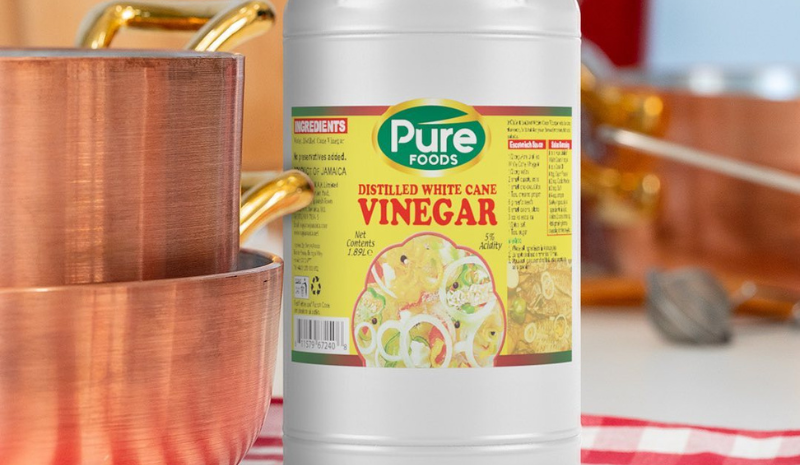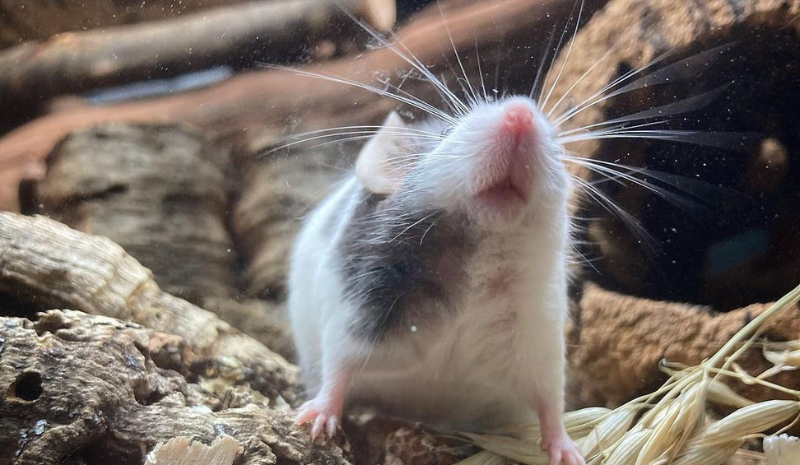Rodent invasion at home can be annoying at best and dangerous at worst. Utilizing poisonous solutions to kill rats is a potential health hazard while turning to traps is inhumane. As a golden rule alternative, you can give some natural control options a go. Vinegar rat repellent is among them. In this piece, I’ll dwell upon the effectiveness of this rat eradication method, the best solutions you can utilize, as well as answer the most typical questions on the topic.
How to get rid of rats with vinegar? Briefly speaking, you can utilize vinegar-drenched cotton balls, spray the solution onto the places where the rodent invaders are most active in your home, add vinegar to your cleaning products, or pour it straight onto the rodents’ nests.
[wpsm_titlebox title=”Homemade Vinegar Rat Repellent” style=”main”]
Mix one part water and one part vinegar in a spray bottle. Then, add a few drops of lemon, peppermint, or eucalyptus oil to the mixture. Spray this mixture around the areas of your home where you’ve seen rats or where you think they might enter.
[/wpsm_titlebox]
Using Vinegar as a Rat Repellent — Does It Work?
Do rats hate vinegar? Yes. So, absolutely, vinegar is a quite effective rat deterrent for home use. It flaunts a nasty smell that is sure to make your rodent invaders sick. And it will make them flee, too. Ensure that the odor of your vinegar repellent is potent enough for the rats to truly feel that their new home has turned into a hostile environment.
When you find super smelly vinegar, utilize it in limited areas of your home. Because soaking all your house in strong vinegar is sure to result in deterring your pets and loved ones, too. Bear in mind that once the smell starts fading, the effectiveness of this method becomes weaker, too. With that said, despite certain drawbacks, vinegar does make a difference when it comes to kicking out the arrogant rat occupants from your home.
Ways You Can Use Vinegar as a Rat Repellent
Are you on the prowl for a tried and true natural way of driving rats out of your dwelling? Opting for vinegar is right up your street. Below, I’ve rounded up several vinegar-based rat-repelling methods that grant you a fair dose of freedom of choice in this respect:
- Vinegar-drenched cotton balls. Just soak them in white vinegar and put them where your rodent invaders love hanging out the most.
- Put a cup full of white vinegar where your uninvited rodent guests like to party. This will definitely make your dwelling less favorable ‘in their eyes.’
- Combine white vinegar, water, and salt. Spray the mixture where your rodent invaders are most active in your dwelling.
- Pour white vinegar into your cleaning products. Naturally, this will weaken the smell of the repellent along with its efficiency, but this method is sure to work fine in combination with other rat-deterrent options.
- Drizzle white vinegar onto a rodent nest, then let it sink in. Noticing rodent nests in your house? That’s exactly what you might want to do. Yes, this method is the least merciful out of the five I’ve mentioned, but clearly, it’s the most powerful, too.

Wondering about the ways to humanely kill a rodent? You can opt for killing rats with baking soda and vinegar. When mixed, these two solutions produce the gas carbon dioxide. This poisonous gas will asphyxiate your rodent occupants in the most pain-free way imaginable. Just like with any poison, this deadly combo should be applied with maximum attention and safety. If you choose to stick with this method, make the solution unreachable to your pets, kids, and other family members.
Remember one important fact: rats are capable of outsmarting anyone on their way. Therefore, if you decide to prepare, say, a bait, make sure you disguise it as something that looks and tastes yummy e.g., cheese or peanut butter.
Additional Ways to Prevent Rodent Invasion
What smell do rats hate aside from white vinegar? They can’t stand the way garlic, onion, black pepper, and bleach smell. You are free to prepare homemade rodent repellents using these solutions. As an alternative (or additional way to deter rats), identify their entry points into your house and close them permanently. Here are some more details in this respect:
- identify cracks and breakage in the walls;
- ensure the vents are closed with metal screening;
- check if there are any gaps or holes in the roof;
- clean your chimney and install rat-proof chimney caps;
- close off the gutters properly.
So, if you have poor-fitted doors or any of the aforementioned potential rats’ entry points in your dwelling, it’s time to seal ‘em all in the most professional and proper way possible. If you don’t have enough time or patience for waging this long-term war against rodents, just turn to your local pest management company. Excellent specialists will guarantee you a beautiful, rodent-free home..

Bottom Line: Prevention Is Key
Now that you’re aware of five vinegar-based solutions aimed at eliminating your rodent occupants, delve deeper into the topic and learn how to use them correctly. Don’t forget about such a vital step as prevention. Look for potential rat entry points and close them permanently. If these pesky rodents don’t find ways to squeeze into your house, you won’t have to end up losing your head over searching for the best home remedies to kill rats.
Also read:
[su_posts template=”templates/list-loop.php” posts_per_page=”5″ offset=”16″ order=”desc”]
Have anything to add on the topic? You’re welcome to speak up and share your experience in the comment box below. I value your two cents greatly.

